Understanding prepositions Building Vocabulary Worksheets for Ages 5-6
5 filtered results
-
From - To
Welcome to our "Understanding Prepositions Building Vocabulary Worksheets" for ages 5-6! These engaging and interactive worksheets are designed to help young learners grasp the concept of prepositions while expanding their vocabulary. Through fun activities, children will explore the relationships between words and pictures, enhancing their reading comprehension and language skills. Each worksheet encourages hands-on learning, allowing kids to identify, use, and understand prepositions in context. Perfect for classroom use or home practice, these resources are ideal for creating a solid foundation in language learning. Boost your child’s confidence in writing and speaking with our vibrant, age-appropriate exercises today!
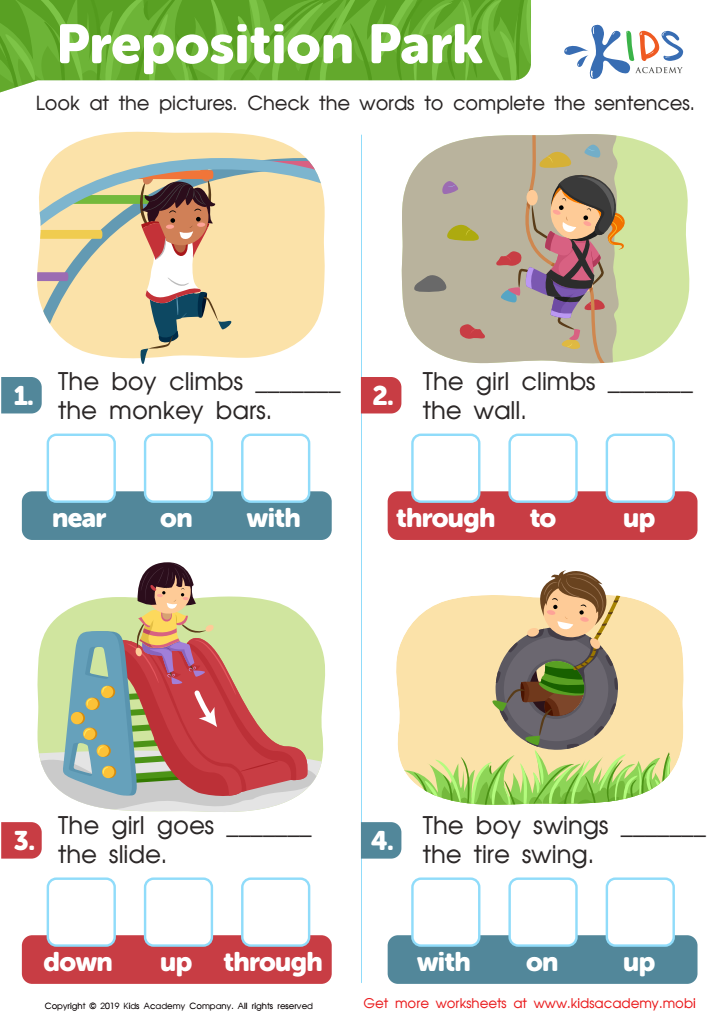

Preposition Park Worksheet
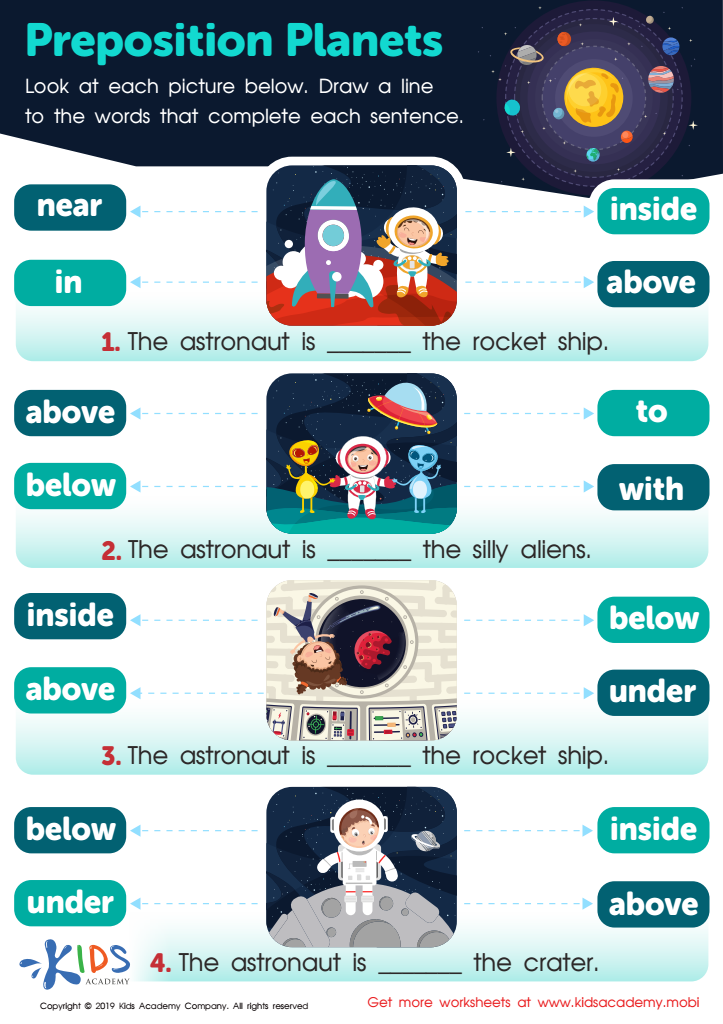

Preposition Planets Worksheet
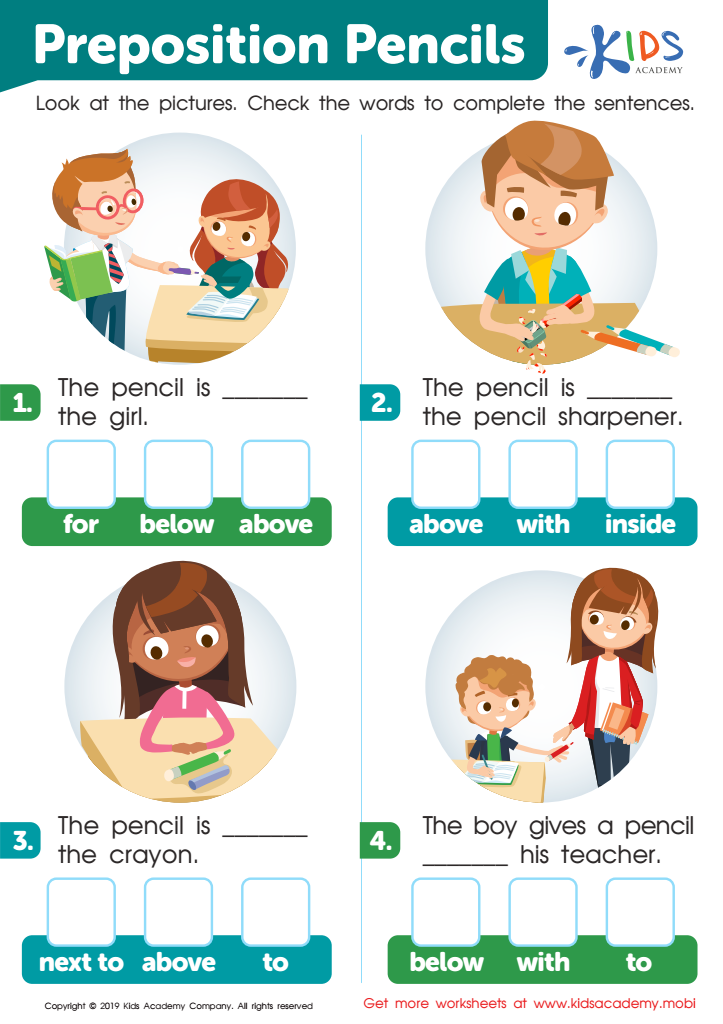

Preposition Pencils Worksheet
Understanding prepositions is essential for children aged 5-6 as it forms the foundation of their language skills and comprehension. Prepositions are words that describe relationships between different elements in a sentence, such as “in,” “on,” “under,” and “beside.” By mastering prepositions, children can construct clearer and more precise sentences, enabling them to express their thoughts effectively.
Building vocabulary, including prepositions, enhances children's literacy development. A robust vocabulary allows them to more easily understand stories, follow instructions, and converse confidently in various contexts. This skill is critical as they start to interact more with peers and engage in classroom activities.
Moreover, prepositions and vocabulary contribute directly to reading comprehension, which is crucial as children begin their formal reading journeys. A solid grasp of spatial relationships helps them understand the context of texts, making them better readers and more adept learners.
For parents and teachers, fostering an understanding of prepositions and building vocabulary is not just about language; it is about equipping children with essential communication skills and enhancing their overall cognitive development. Engaging children in playful learning activities that focus on these aspects can significantly impact their future academic success and interpersonal relationships.
 Assign to My Students
Assign to My Students











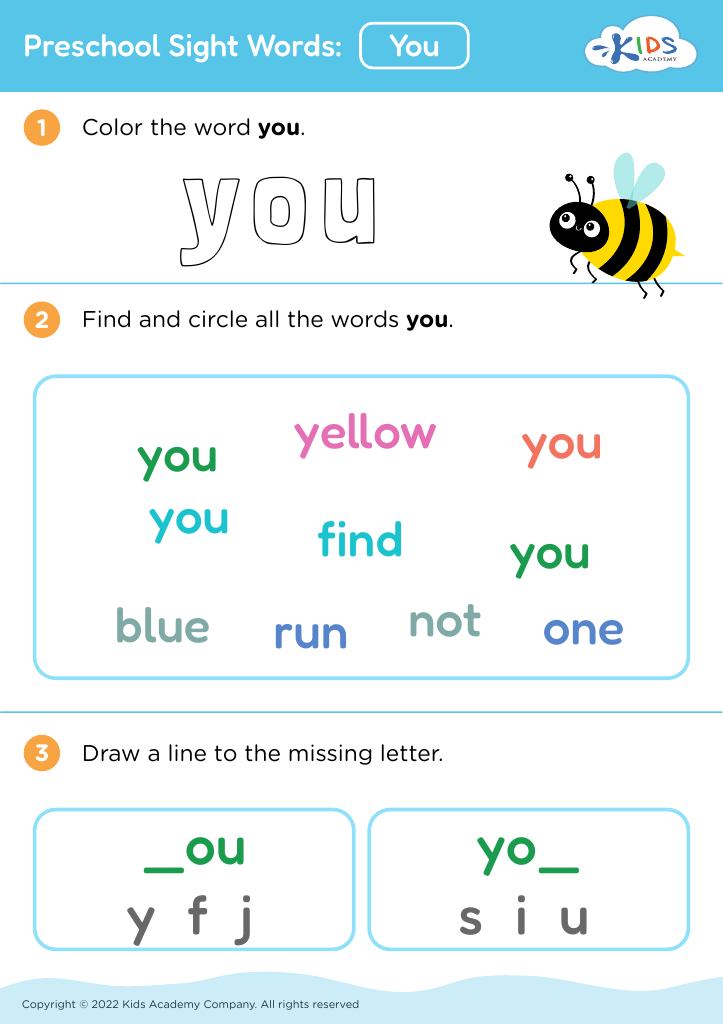
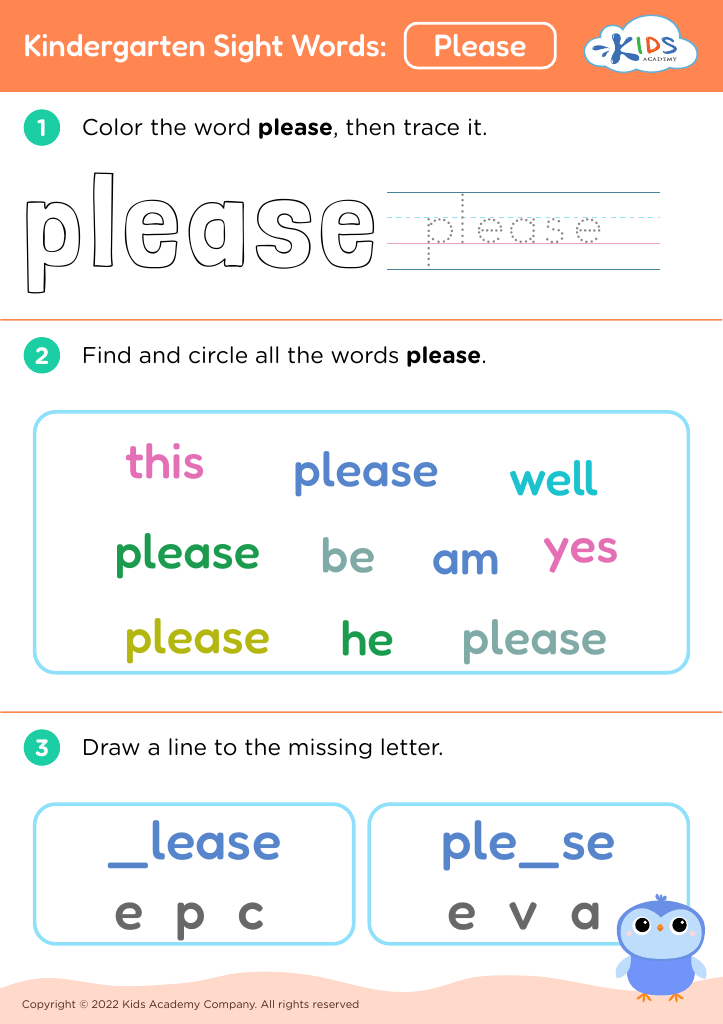







.jpg)













